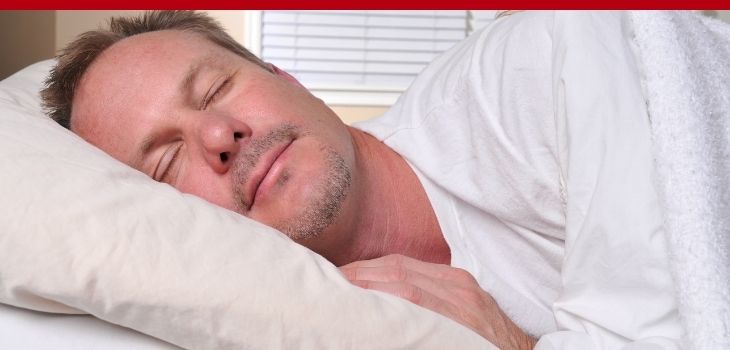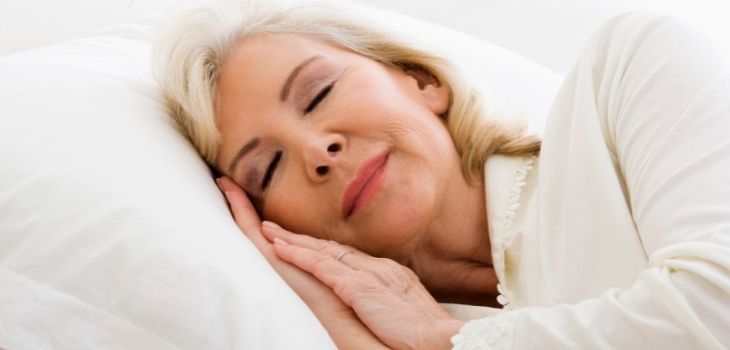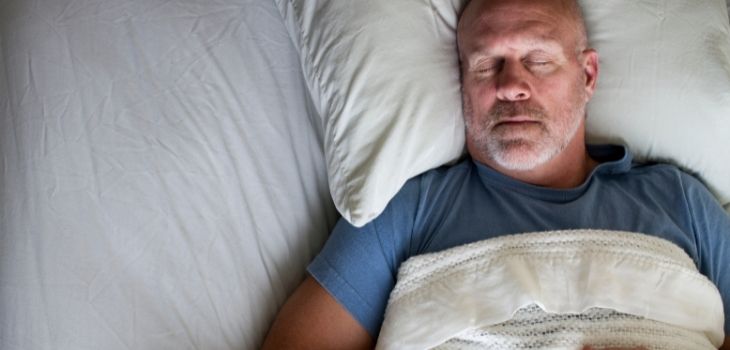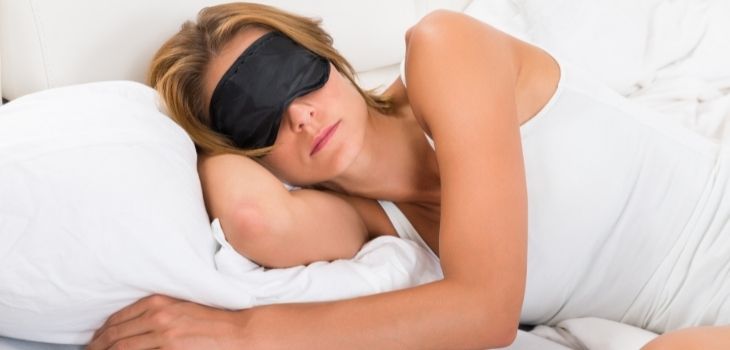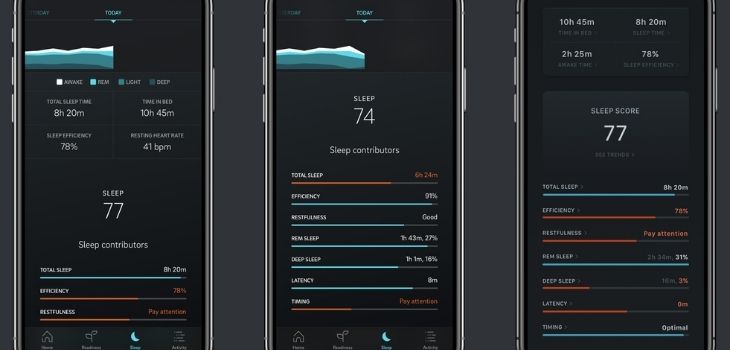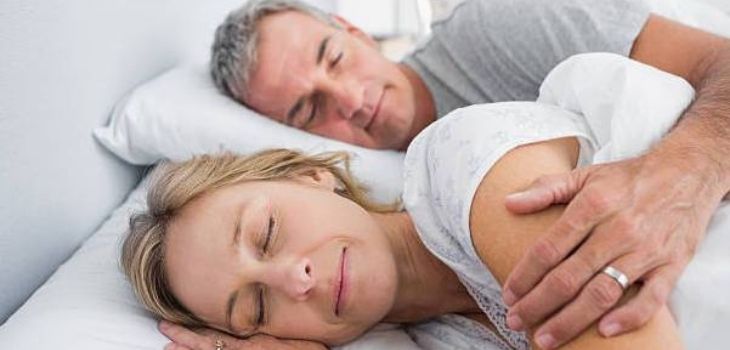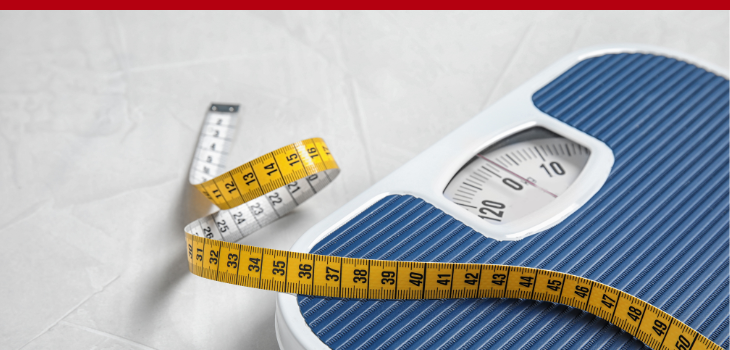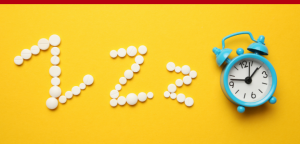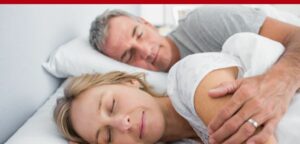You might have gotten away with sleepless nights in your 20s and 30s. But as we get older, sleep becomes increasingly important for maintaining good health.
This Sleep Masterclass will explain the science of sleep and also reveal strategies that will help you get a better night of sleep.
You should pay extra attention to this podcast/blog if:
- You don’t feel rested when you wake up.
- You wake up several times during the night for different reasons.
- Your mind races at night and stops you from falling asleep.
- You are suffering from a bout of insomnia.
If that’s you, you’re in the right place. Get ready to learn how you can get a good night of sleep so you can improve your productivity, boost your performance at work, and have great relationships.
Why Is Sleep So Important?
Sleep is a requirement for every living thing. And there are no supplements or exercises or biohacks that can replace a good night’s sleep.
Both scientists and doctors tell us that sleep lets our bodies repair and balance themselves, though we are still figuring out why sleep is necessary.
What we do know is that lack of sleep hinders your ability to lose weight, learn new things, stay productive and focused at work, and manage your emotions.
You need sleep for energy levels, to recover from workouts, and to follow a nutrition plan without cravings.
About one in three American adults don’t get sufficient sleep on a regular basis.
What Causes Poor Sleep?
A lot of sleep deprivation comes from bad habits, often a simple lack of willpower to lay down at a decent time. Sleeping at 10 pm on weekdays then staying up until 2 am on weekends will lead to “social jetlag.”
We might see the window closing on the full 8 hours, but decide to watch one more episode of that show we’re watching instead of turning off the lights. If we don’t get enough sleep early enough in the night, we can miss out on certain phases of sleep.
Some people have more serious sleep disorders like sleep apnea and insomnia that make it hard to get enough rest.
Others may have insomnia brought about by circumstances, such as working a night-shift job.
Of course, high levels of stress can lead to a lot of sleep-related complications.
And another less talked about cause of poor sleep, is emotional trauma. I’ve found that my clients who have tried everything to improve their sleep but still struggle to suffer from deeper emotional issues.
In scientific terms, the three causes of poor sleep are circadian disruption, physiological hyperarousal, and cognitive hyperarousal.

The Effects of Sleep Deprivation
A recent study showed that when people on a diet got a full night’s sleep, more than 50% of the weight they lost was fat.
When sleep was cut to five hours, only 25% of their weight loss came from fat.
Sleep-deprived dieters feel hungry more often since the body will try to compensate for a lack of energy by consuming more fuel.
This often leads to hedonic eating, where the sleep-deprived not only eat more but tend to crave the convenience of junk food.
Sleep is crucially important to dieting, and specifically to losing body fat. Along with dieting and exercise, it is a key component to attaining the optimal physique.
If you have chronic injuries or medical conditions that cause you pain, sleep deprivation creates an effect called central sensitization, which makes pain receptors more sensitive.
Essentially, getting more sleep will help you feel less chronic pain, which in turn increases the quality of life in all aspects, including finding the motivation to exercise.
Beyond that, when you lose sleep, your ability to focus and pay attention suffers, which hinders work performance and relationships.
Sleeping less than 7 hours in a 24-hour period puts you at greater risk for car crashes, and presumably, dangerous workplace accidents that require concentration.
Sleep deprivation can also trigger mental illnesses like clinical depression, which in turn can cause insomnia and create a vicious cycle.
Our bodies react to the lack of sleep and produce higher levels of ghrelin, also called the ‘hunger hormone’, which causes the empty grumbling in our stomachs that demands food.
This is likely why sleep deprivation increases cravings for junk food, causing ‘hedonic eating’, when we consume food purely for pleasure rather than sustenance.
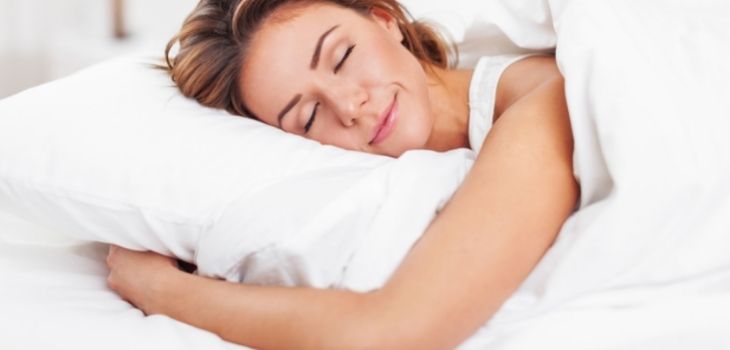
How Much Sleep Do I Need?
And scientists have been trying to answer this question for decades.
Early studies put subjects in stimulation-free environments where they were deprived of any sense of time, and then monitored their sleep patterns.
Subjects slept up to 12 or 20 hours in the early days, probably because they were so sleep deprived. Eventually, their sleep times reduced until each person arrived at a consistent daily amount.
Most settled around an average of eight hours.
There are some people who have ‘short sleeper genes’ that allow them to perform well off little sleep, but this is a tiny percentage of the population.
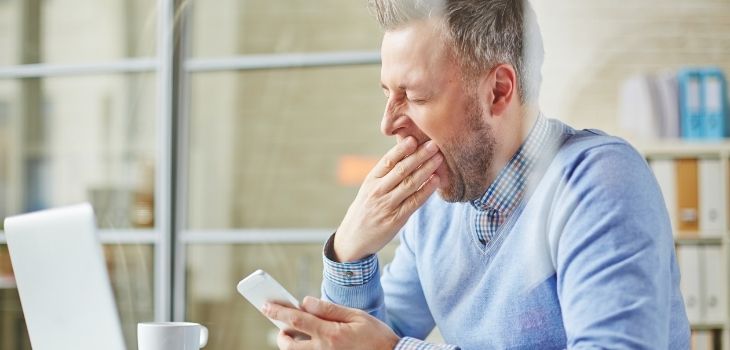
How Does Sleep Affect the Next Day?
In 1982, Dr. Alexander Borbely from the University of Zurich published an article in the Journal of Human Neurobiology, which became a major breakthrough in the field of the sleep study.
He proposed the ‘two-process model of sleep regulation, which asserted that sleep and wake are controlled over a 24-hour period.
The first process is called ‘sleep pressure’, a compulsion that starts as soon as you wake up and keeps building until you’re so tired you must lay down again.
If you’re feeling sleep pressure soon after you wake up, it’s probably because you failed to get enough restful sleep the night before.
The ‘wake drive’ is the result of several different brain systems working together to produce alertness, which counteracts mounting sleep pressure.
A substance called adenosine–a byproduct of our bodies’ metabolism–is responsible for sleep pressure.
Coffee works by blocking adenosine receptors. It doesn’t ‘give you energy’, it simply stops the brain from telling you that it’s needed for a time.
Our wake drives operate on a 24-hour cycle, based on light exposure.
As a result, we have evolved to sleep at night when it’s dark and wake during the day when it’s light.
In the modern world, however, many of us work inside in areas that are darker than the outside world.
We compensate by turning on lights and looking at bright screens that throw off our natural light exposure, so we’re getting exposed to light at night when it should be less.
This throws off our circadian rhythm that regulates our natural sleep cycles, causing us to feel tired during the day and wired at night.
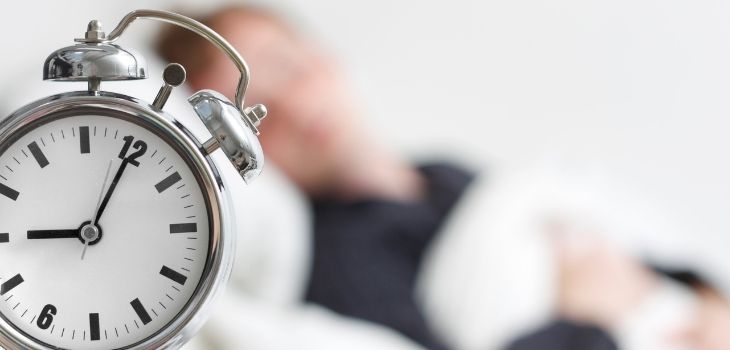
What Are Circadian Rhythms?
Humans are what are called diurnal creatures, which means we’re active during the day and we rest at night.
The opposite of this is nocturnal creatures like bats and owls, who are active at night and sleep during the day.
The word ‘circadian’ means “recurring on a 24-hour cycle, even in the absence of light fluctuations”.
It is important that we understand this rhythm so we understand our bodies’ sleep necessity.
Light exposure is the most powerful influence on your circadian clock, so it becomes imperative to pay attention to it if you want to improve your sleep cycles.
Exposing yourself to light at the proper time can have positive effects on your energy levels, quality of sleep, cognitive function, mood, and even blood pressure.
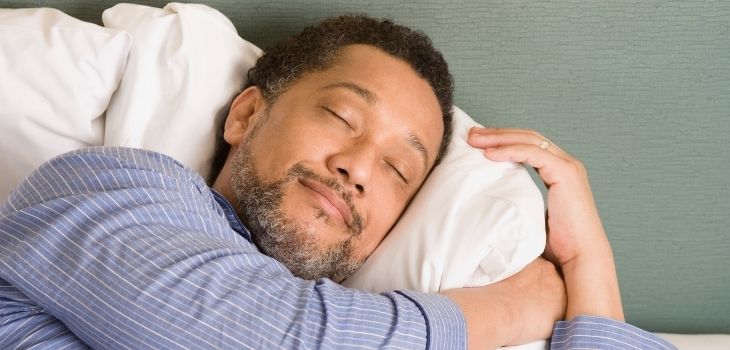
The Four Stages of Sleep
Sleep is broken into four stages, as follows:
- Stage #1 – Non-REM sleep with alpha waves.
- Stage #2 – Non-REM sleep with theta waves.
- Stage #3 – Deep sleep or slow-wave sleep with delta waves.
- Stage #4 – Rapid Eye-Movement sleep, better known as REM sleep.
The first two stages are just transitional phases, but the latter two are vital for avoiding sleep deprivation complications.
REM sleep happens every hour and a half and lasts anywhere from 5 to 30 minutes, and it’s the most important sleep stage.
Even if we get a lot of stage one sleep, problems will occur without consistent slow waves or REM sleep.
A complete sleep cycle takes an average of 90 minutes to 120 minutes, with each stage lasting between 5 and 15 minutes.
The first sleep cycles of each instance of rest have relatively short REM periods, which become longer as we approach time to wake up.
This is why we can’t go to bed at 5:00 a.m. and wake up eight hours later feeling rested. Our connection with the earth’s dark and light cycles affects when REM sleep cycles happen.
The Effects of Age on Sleep Cycles
‘Sleep latency’ is a measure of how long it takes for us to fall asleep.
If you take less than five minutes to fall asleep, you’re probably sleep-deprived; if it takes close to a half-hour or more, your problems might be in the other direction.
Also, as we get older, we take longer to fall asleep and have fewer instances of deep/slow-wave and REM sleep.
This means improving sleep patterns becomes more and more important as we age.
Sympathetic Versus Parasympathetic
To solve this problem, we must address balancing stress and recovery.
Too many of us replace rest with coffee, work stressful jobs for eight hours, and then stress our bodies more by engaging in hedonic eating.
All these activities contribute to sleeplessness, and we continue these cycles by watching TV late and throwing off our daily light exposure.
To remedy this, we must understand how our parasympathetic nervous system works, which is responsible for ‘rest and digest’, and our sympathetic nervous system, which is our ‘fight or flight response to adrenaline.
Inflammation, heart disease, diabetes, and other bodily afflictions lead to excessive sympathetic nervous system activity, which leads to a buildup of norepinephrine, or adrenaline that affects the brain.
This leads to imbalances that cause us to lose sleep.
We spend lots of time in high-stress situations at work, then lifting weights, and drinking coffee, which all increase sympathetic nervous system activity.
But we don’t engage in parasympathetic activities like rest and meditation that bring our systems back into balance.
Of course, sleeping is the ultimate parasympathetic activity, and the main thing we can do to improve parasympathetic activity is go to bed earlier, to give yourself more opportunities to reach REM sleep.
How Can I Get a Better Night’s Sleep?
This is the all-important question of the day. The following strategies listed below will help you increase parasympathetic activity, which raises the likelihood you’ll fall asleep quicker and reach REM sleep:
Strategy #1: Make sleep a priority
This concerns your mentality regarding sleep. As long as sleep is an afterthought and not a focus, quality sleep will likely remain elusive.
Strategy #2: Keep a consistent sleep schedule
This means going to sleep and waking up at the same time every day. This doesn’t mean it has to be down to the minute but within the same few hours.
Strategy #3: Avoid blue light for two hours before bedtime
There is a free application for all platforms called F.lux, which adapts your computer screen to match the time of day. It helps minimize the light exposure that causes us to lose sleep.
You can also wear blue-blocking glasses. I recommend the Carbon Shades, as they provide better coverage.
Strategy #4: Dim your lights at night
Dimming lights include the television, your phone, your laptop, and any other lights in the house that have dimming settings.
Strategy #5: Blackout your bedroom
This is done with blackout curtains that prevent the external lights from creating uncontrolled light exposure and wearing a sleep mask.
Strategy #6: Soundproof your bedroom:
If you are sound sensitive, invest in soft foam earplugs that protect your ears from random noises in the middle of the night that may interrupt your sleep before it reaches REM.
Strategy #7: Keep your bedroom cool, but comfortable
‘Comfortable’ is subjective, I know, but it’s usually in the range of 65 to 70 degrees Fahrenheit, or 18 to 21 degrees Celsius.
Cooling mattresses, pillows, and chilling pads can all be effective ways to find your comfort zone without altering the temperature of the entire house.
Strategy #8: Take hot baths, cold showers, or swim
Many people feel relaxed after they’ve taken a hot bath or shower; others, like myself, find cold showers a more effective way to induce sleepiness.
A late-night swim is a good way to promote a parasympathetic activity. Of course, this activity requires late-night pool access, which most of us don’t have.
Strategy #9: Exercise regularly
By now, it is common knowledge that people who work out for at least 30 minutes a day get better sleep.
Strategy #10: Invest in a comfortable mattress
Tempur-Pedic and memory foam mattresses generally become more comfortable–and thus, more effective–the more you use them.
It’s a good idea to look for a mattress that adjusts to your form over time rather than trying to find a universal solution in a regular mattress.
Strategy #11: Address chronic pain
Addressing chronic pain is a medical issue outside the scope of this article, but without measures to mitigate it, all the measures taken above will be less effective.
Strategy #12: Losing weight helps us sleep better
People who are overweight–more than 25% body fat in men; 30% in women–may experience sleep complications brought about by sleep apnea.
Sleep apnea is a condition where the afflicted experience pauses in breathing or shallow breathing due to narrowed airways, commonly from the excess tissue in the throat brought about by excess weight.
All the above are guidelines rather than ironclad rules. Since all our bodies are different, you may need to experiment with different combinations to see which works best.
Track Your Sleep, Track Your Recovery
The best tool I recommend for this is the second-generation Oura ring.
It is a simple ring worn about the finger that tracks everything from resting heart rate, body temperature, heart rate variability (HRV), sleep efficiency, deep sleep, REM sleep, and many other attributes.
I am not getting paid to say how well this product works; I am endorsing it because I think it is objectively the best wearable monitor on the market.
Bottom Line:
It is important that we accept that there are no supplements, exercises, methods, or tricks that can replace the restorative effect of quality sleep.
Understanding how to balance our body’s sympathetic system (fight or flight, adrenaline, wakefulness) with its parasympathetic (meditation, relaxation, restfulness) is key to maximizing your sleep.
Remember, sleeping is one of the most important parts of improving your overall health and living the legendary life we all seek.
In part 2 we explore how lack of sleep might be affecting all of your daily activities. Also, we reveal four sleep secrets that will help you get a good night of sleep and wake up ready to dominate your day. Listen to part 2 now!
Links Mentioned:
- Organifi Green Juice
- F.Lux
- Carbonshades
- Oura Ring
- https://pubmed.ncbi.nlm.nih.gov/15018264/
- https://www.ncbi.nlm.nih.gov/pmc/articles/PMC2951287/
Related Episodes:
441: How Your Body’s Rhythm Could Help You Lose Weight, Sleep Better & Live Longer with Greg Potter
430: The Power Of Sleep with Dr. Kirk Parsley
398: Sleep Guidelines, Immune System, and Coronavirus with Dr. Kirk Parsley



